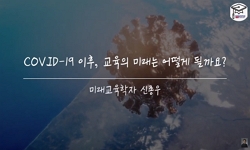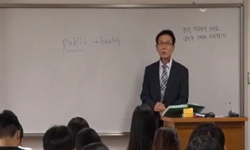코로나바이러스-19 (COVID-19)는 일반적으로 성인에 비해 소아에서 임상적으로 경한 양상을 보이며, 대부분의 소아에서 약 7일간의 격리가 끝나면 증상이 호전되어 특별한 이벤트 없이 퇴원하...
http://chineseinput.net/에서 pinyin(병음)방식으로 중국어를 변환할 수 있습니다.
변환된 중국어를 복사하여 사용하시면 됩니다.
- 中文 을 입력하시려면 zhongwen을 입력하시고 space를누르시면됩니다.
- 北京 을 입력하시려면 beijing을 입력하시고 space를 누르시면 됩니다.


Unexpected Aggravation of COVID-19 After Recovery in Three Adolescents With Chronic Neurologic Conditions: A Case Series = Unexpected Aggravation of COVID-19 After Recovery in Three Adolescents With Chronic Neurologic Conditions: A Case Series
한글로보기https://www.riss.kr/link?id=A108457333
- 저자
- 발행기관
- 학술지명
- 권호사항
-
발행연도
2022
-
작성언어
-
- 주제어
-
KDC
500
-
등재정보
SCOPUS,KCI등재
-
자료형태
학술저널
-
수록면
147-154(8쪽)
- DOI식별코드
- 제공처
-
0
상세조회 -
0
다운로드
부가정보
국문 초록 (Abstract)
코로나바이러스-19 (COVID-19)는 일반적으로 성인에 비해 소아에서 임상적으로 경한 양상을 보이며, 대부분의 소아에서 약 7일간의 격리가 끝나면 증상이 호전되어 특별한 이벤트 없이 퇴원하게 된다. 우리는 통상적인 임상경과와는 다르게, 격리 해제시점 또는 퇴원을 고려하고 있는 시점에 갑자기 악화된 임상증상을 보이는 3명의 청소년 환아들을 경험하였다. 세 명의 아이들은 공통적으로 신경학적 질환을 기저질환으로 가지고 있었다. Case 1은 울리히 선천성 근디스트로피로 진단받고 밤에만 이중양압기로 호흡보조를 받던 17세 남환의 경우로, 첫 COVID-19 증상 이후 9일이 지나고 증상 호전되어 퇴원을 준비하던 중 심폐정지가 발생하였다. Case 2는 뇌출혈 및 뇌경색 이후 병상에 누워 지내며 기관절개관 삽입 후 가정용 인공호흡기로 호흡보조를 받던 12세 여자 환아로, 증상이 호전되어 퇴원하였으나 첫 COVID-19 증상 이후 11일이 지난 후 심폐정지가 발생하였다. Case 3의 경우 조산아로 출생하여 뇌실출혈 및 수두증 진단받고 병상에 누워 지내나 호흡보조는 받지 않았던 12세 남자 환아로, 첫 증상 이후 호전추세였으나 10일 후 다기관 기능부전 확인되어 입원 진행하였다. 항바이러스제, 스테로이드제, 경험적 항생제가 투여되었고 중환자실 치료를 시행하였다. 세 환아들 중 2명 (case 1, 3)은 치료를 통해 호전되었으나, 1명 (case 2)는 심부전 진행하여 사망하였다. 이러한 경험에 비추어 볼 때, COVID-19 격리 기간이 끝나고 퇴원 가능한 시점이라도 갑작스러운 증상 악화를 보일 가능성이 있기에, 긴장을 놓지 않고 임상 증상의 변화를 확인하고 필요시 빠른 조치를 취해야 할 것으로 생각된다. 특히 신경학적 또는 호흡기적 만성 질환을 갖는 아이들에게 주의가 더 필요할 것으로 생각된다.
다국어 초록 (Multilingual Abstract)
The clinical severity of coronavirus disease 2019 (COVID-19) in children is usually mild. Most of the affected patients completely recovered from COVID-19 before being released from approximately 7-day quarantine. However, children with comorbidities ...
The clinical severity of coronavirus disease 2019 (COVID-19) in children is usually mild. Most of the affected patients completely recovered from COVID-19 before being released from approximately 7-day quarantine. However, children with comorbidities are at risk of more severe disease and adverse outcomes. We report three cases of COVID-19-affected adolescents with underlying chronic respiratory difficulty due to neurologic diseases who showed sudden clinical aggravations at the time of discharge, even after full clinical improvement. Patient 1 is a 17-year-old boy with Ullrich congenital muscular dystrophy who had cardiopulmonary arrest 9 days after the initial COVID-19 symptoms. Patient 2 is a 17-year-old girl with intracerebral hemorrhage with infarction in bed-ridden status who had cardiopulmonary arrest 11 days after the initial symptoms. Patient 3 is a 12-year-old boy with intraventricular hemorrhage with hydrocephalus in bed-ridden status who showed multiorgan failure 10 days after the initial symptoms. Remdesivir, dexamethasone, and empirical antibiotics were administered with mechanical ventilation and intensive unit care. Among the three patients, two (patients 1 and 3) were alive, and one (patient 2) expired. Clinicians caring for adolescents with chronic neurologic and/or pulmonary disease should keep in mind that these patients could have sudden deterioration after recovery from the acute phase of COVID-19 around or after the time of discharge.
동일학술지(권/호) 다른 논문
-
- 대한소아감염학회
- 최재홍 ( Jae Hong Choi )
- 2022
- SCOPUS,KCI등재
-
국내 코로나바이러스감염증-19 유행 제3–4기 소아청소년 환자의 임상적 특성: 단일기관 후향적 연구
- 대한소아감염학회
- 문가원 ( Gawon Moon )
- 2022
- SCOPUS,KCI등재
-
Contact Investigation for Twins With Congenital Tuberculosis in the Neonatal Intensive Care Unit
- 대한소아감염학회
- ( Myung Hwan Yoo )
- 2022
- SCOPUS,KCI등재
-
Severe SARS-CoV-2 Infection With Multiorgan Involvement Followed by MIS-C in an Adolescent
- 대한소아감염학회
- ( Bomi Lim )
- 2022
- SCOPUS,KCI등재




 ScienceON
ScienceON KISS
KISS






